Amy Allen Is Your Favorite Singer's Favorite Songwriter—and the Brains Behind the Decade's Biggest Hits
The 33-year-old has co-written chart-topping earworms for Sabrina Carpenter, Harry Styles, Rosé, and more. But her superpower isn't just being great at writing music—it's helping the world's biggest pop stars find vulnerability, humor, and heart.
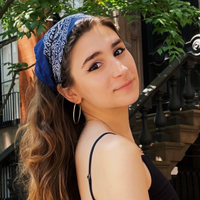
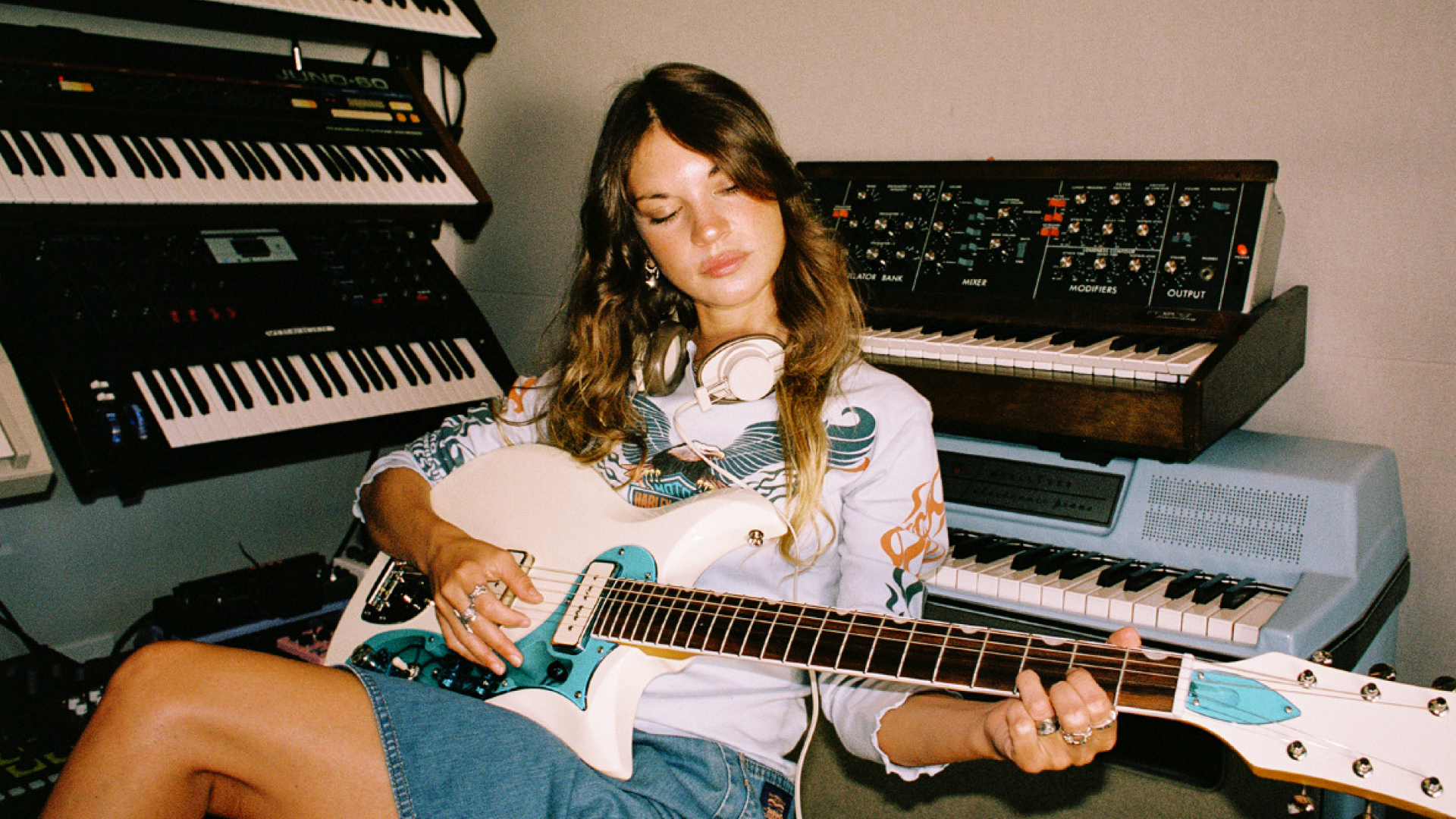
Select the newsletters you’d like to receive. Then, add your email to sign up.
You are now subscribed
Your newsletter sign-up was successful
Want to add more newsletters?

Delivered daily
Marie Claire Daily
Get exclusive access to fashion and beauty trends, hot-off-the-press celebrity news, and more.

Sent weekly on Saturday
Marie Claire Self Checkout
Exclusive access to expert shopping and styling advice from Nikki Ogunnaike, Marie Claire's editor-in-chief.

Once a week
Maire Claire Face Forward
Insider tips and recommendations for skin, hair, makeup, nails and more from Hannah Baxter, Marie Claire's beauty director.

Once a week
Livingetc
Your shortcut to the now and the next in contemporary home decoration, from designing a fashion-forward kitchen to decoding color schemes, and the latest interiors trends.

Delivered Daily
Homes & Gardens
The ultimate interior design resource from the world's leading experts - discover inspiring decorating ideas, color scheming know-how, garden inspiration and shopping expertise.
In 2017, musician Amy Allen was sitting alongside her then-bandmates in the kind of record label meeting many artists dream of. But as one of their tracks played in a room full of execs, she couldn’t ignore the “sinking feeling” in her stomach that she “wasn’t good enough.”
Eight years later, the Grammy-winning songwriter considers that moment to be the one she realized she wanted to pursue songwriting for other artists rather than performing herself—and just how determined she was to do so. Speaking to Marie Claire of the turning point, she says: “I listened and was like, How dare I try to get signed to a label before I fully believe in it? And I didn’t yet. I was like, I know I can write better songs than that.”
The next day, the Berklee College of Music alum amicably parted ways with her band and gave herself a year to focus on her craft. “I don't know where that came from within me, to feel confident in making those decisions, but I did,” Allen, 33, says. Not long after, she began collaborating with songwriter Scott Harris (who has worked with Shawn Mendes and Camila Cabello), penned her first hit—the 2018 Selena Gomez track “Back to You”—and moved from New York City to Los Angeles.
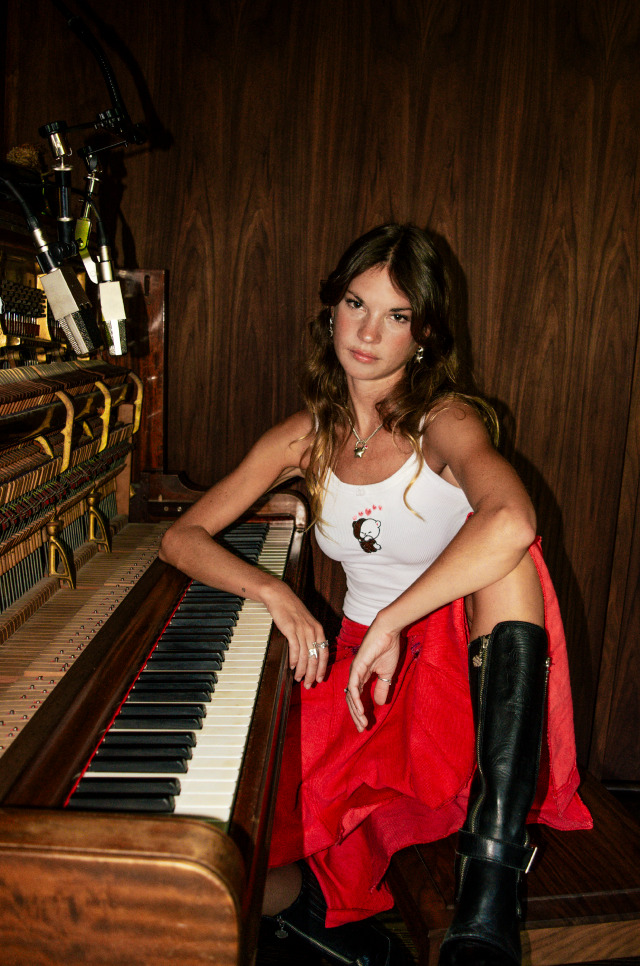
Amy Allen has co-written hits like Sabrina Carpenter's "Feather" and "Espresso," Tate McRae's "greedy," and Halsey's "Without Me," among many others.
Allen’s inkling that she had a few more earworms in her was right. You’ve undeniably heard, listened on repeat, or maybe even had one of her infectious, heart-on-your-sleeve credits on your Spotify Wrapped. The hitmaker is perhaps best known as Sabrina Carpenter’s partner-in-crime, lending witticisms across 2024’s Short n’ Sweet, her recent August release Man’s Best Friend, as well as select songs on 2022’s Emails I Can’t Send. She’s also worked with just about everyone dominating the charts, from pop phenoms (Charli xcx, Harry Styles, Olivia Rodrigo) to country stars (Kacey Musgraves, Luke Combs, Megan Moroney) to K-pop faves (JENNIE, Rosé) and more. Her contributions have garnered eight Grammy nominations, including two for Songwriter of the Year, Non-Classical—one of which she won earlier this year, making her the first woman to do so.
It’s her tendency to break the pop pantheon rulebook, think beyond the confines of what a traditional Top 40 entry sounds like, and, most importantly, prioritize vulnerability above all else that’s contributed to her rapid accession across the music industry and charts.
“For a really long time, I felt like songwriting had to be me alone in the corner of my bedroom, writing in my notebook—and if it didn't make somebody feel like they wanted to cry, I wasn't doing my job,” Allen says. “I had this come-to-Jesus moment when ‘Adore You’ by Harry Styles, which I wrote with Harry, [came out]...That broke down this wall in my brain where I was like, Oh, music doesn't always have to be this really serious, heart-wrenching thing. There are so many avenues songs can live in for people.”
Here, Allen opens up about what it’s like getting in the studio with everybody’s favorite artists, why pop is more thrilling than ever, and more.
Get exclusive access to fashion and beauty trends, hot-off-the-press celebrity news, and more.
Marie Claire: In recent years, you’ve transitioned from writing one-off songs for an artist to being involved in the entire record. What has that been like?
Amy Allen: I did cross-country running in high school, and sometimes my work would feel like that: You go in, the session starts at 1, and it’s going to be over at 7. The second the gun goes off, it's a dead sprint to try to write the best possible song. Getting to spend more time with artists across the board has been so fulfilling. With Sabrina on Short n’ Sweet and Man's Best Friend, it has honestly made me fall back in love with music because I get to spend more time with her as a friend. And I get to become better at what I do every day because I'm honing my craft alongside somebody, learning from them simultaneously, and digging into my own experiences.
MC: Can you recall a specific instance where you felt like you were falling back in love with music again?
AA: Doing “APT.” with Rosé, I walked in that day, and Rosé was talking about this Korean drinking game, and I was learning it. Never in my life would I have been like, “This is something that we could turn into a song,” and then our other co-writer on that song, Theron [Thomas], walked in and was like, “What are you guys doing? That has to be a song.” That was such a learning moment for me, because at first I was like, “What’s he talking about? How are we going to make this into a song?” and then once we started going up, we were all like, “Of course this is a song.”
It felt so exciting for me to be a part of something so new and came about in such a foreign way. I feel like I would've never gotten to that place of daring to go down that road if I hadn't already spent so many days with Rosé.
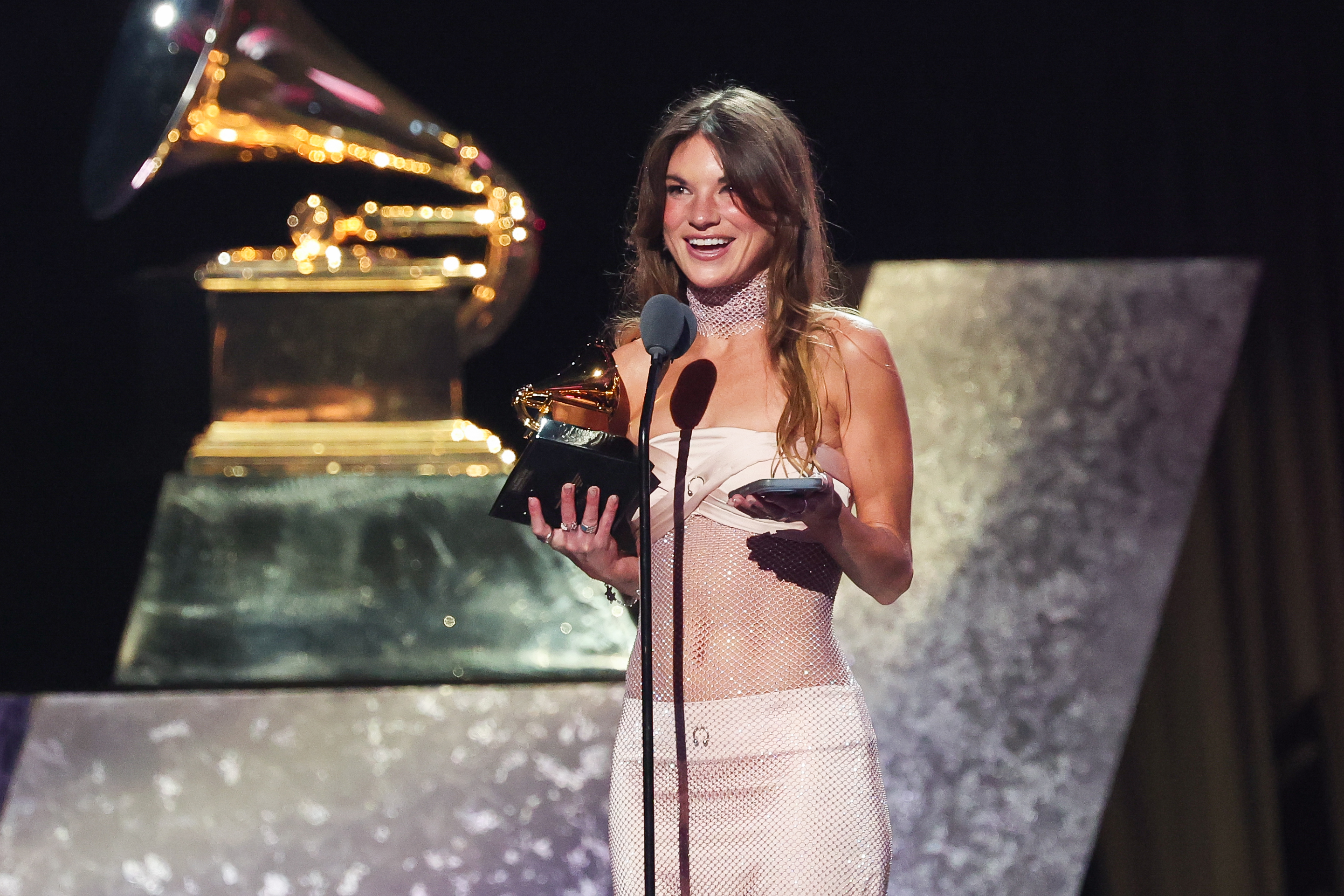
Allen accepting the Grammy for Songwriter of the Year, Non-Classical, at the 2025 awards show.
MC: What is your secret sauce to get somebody to open up to you?
AA: I'm the least qualified therapist of all time. I think it's because I'm one of three sisters. I'm the youngest, and so I would take a lot in. I was born a listener.
The reason why I continue to fall in love with songwriting is because every artist requires me to tap into a different part of my brain, [like], I haven't gone through that specifically, but I remember going through something similar when I was 18, and I can pull from that. Sometimes I feel like we're talking about things, and I'm like, That reminds me of this breakup. And then I'm like, Oh, maybe I haven't processed this, because I'm still very upset even just thinking about that, or vice versa, like, Wow, I thought I still was hanging on, but I don't care about that person at all anymore.
But truly, there is no special sauce; it just comes out of curiosity and love for music.
MC: Have you ever met an artist and had a certain expectation of how working together might go, but then wound up completely surprised?
AA: All the time. It’s really hard when you’re a fan of somebody, like I remember the first time I went in with Harry [Styles] being nervous. I [thought] this person has such a huge world following, they'll be really guarded in what they want to talk about. And nine times out of 10, I'm always pleasantly surprised with who the artist is at their core, how open they are, and how genuine they are about their craft, their songwriting, and their art. It continuously restores my faith in humanity because even these people with the craziest lives and the biggest followings and the pressure that fame can put on you, it always gets stripped down to they are exactly like all of us, and we can connect on these really fundamental human levels.
Of course, everybody’s had probably one ‘death of a hero’ story where they go in with somebody that they’re like, This is going to be the best thing ever, and then there’s no chemistry. I'd be lying if I said I hadn't had those moments, but for the most part, I'm always so excited at who these artists are at their core and how special they are.
A post shared by Amy Allen (@amyallen)
A photo posted by on
MC: You and Sabrina Carpenter integrate a lot of humor into her songs. Why have you been drawn to bringing more of a sense of humor into mainstream pop?
AA: I didn't know that that was a part of my writing that I could really express until meeting Sabrina. It almost feels like she's broken this fourth wall.
Something so refreshing for me with Sabrina is [that] she was the first artist I got to work with who was like, Nah, come on in. I'm going to take you on this whole tour of my ups and downs. She's so expressive, honest, and vulnerable—and at the same time, she's also so witty, and I feel like that's why so many people can resonate with her.
I've learned so much about writing just by being her friend, and then, of course, being in the room with her, and getting to explore these new curiosities about songwriting and how far you can really push the boundaries in pop music. When I look back on it now, there have been people that I've listened to that have incorporated bits of that in their artistry forever that I grew up on—Dolly [Parton] is really quirky and funny, and John Prine. I’m so grateful that we have somebody in our generation doing that so profoundly.
I didn't know that that was a part of my writing that I could really express until meeting Sabrina Carpenter. It almost feels like she's broken this fourth wall.
MC: Do you ever find it challenging to be that honest and vulnerable all the time?
AA: I've been writing my whole life, but really going into rooms with people every day [for seven years now and], feeling like they're taking your shirt off and being like, “Here I am! What do you think?” feels kind of like a muscle now. There are definitely people I've worked with where it feels like I'm a little bit insecure to do that—maybe it takes two hours or four hours before I'm fully diving in. But there's this saying within the songwriting community: Dare to suck. If everybody's afraid to be vulnerable and to say something stupid, or it isn't the most flattering thing, then no good song gets written.
There are so many days when I look back and I'm like, That song will never see the light of day, but the conversation I had with the artist that day was 10 times worth what the song would've been like. Those moments of vulnerability and bearing your own humanity, the embarrassing bits of you, always end up being worth it in my experience.
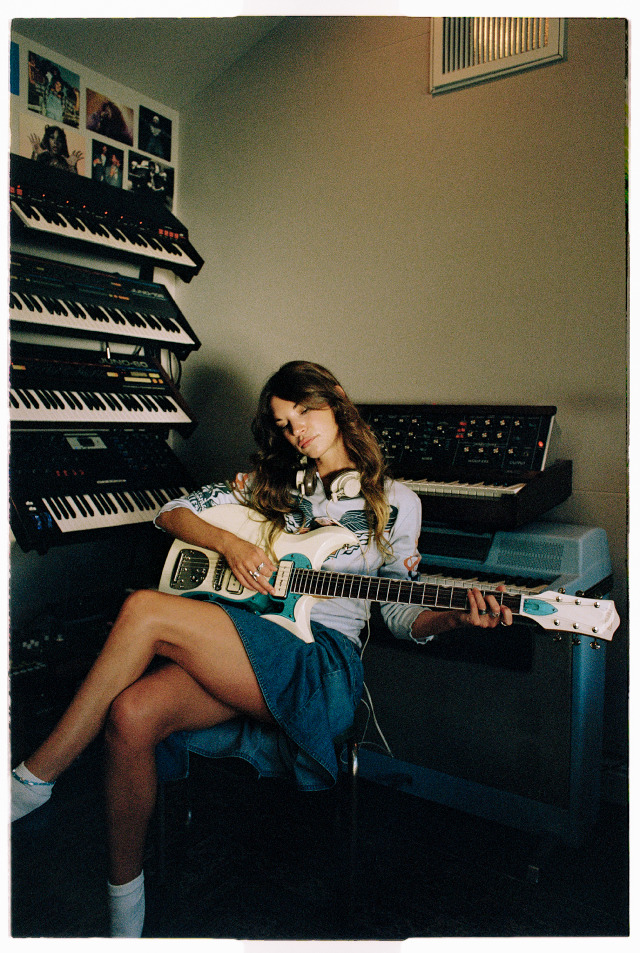
"The reason why I continue to fall in love with songwriting is because every artist requires me to tap into a different part of my brain," Allen says.
MC: The statistics regarding female songwriters are growing, but still pretty dismal. How have you had to navigate advocating for yourself in the industry?
AA: That didn't really hit me until I moved to L.A., I started getting into a lot of sessions, and I was like, I haven't seen another woman for six months. For sure, I’ve had to advocate for myself, and my manager, Gabz [Landman], is phenomenal. I think having another woman as my partner in crime through all of this has been invaluable for me to look up to her and have her advocate for me, and give me the confidence to advocate for myself.
Even in the past seven years I've been doing it, now I'm working with a bunch of female producers and a bunch of female engineers. We just don't get to work—we have to seek each other out to be in the same room together. But still, it's an exciting place of good change right now.
MC: You’ve said before that you’re scared of writing a song that sounds like a standard No. 1. Do you allow that fear to fuel you and allow yourself to go in unexpected ways while writing?
AA: I try my best to never create from a place of, “We're going to write a hit today.” But now, something that’s so exciting about pop music is the way it’s harder to call it. For instance, with the past two Sabrina albums, there are key changes, and it's more musical than anything in the past 10 years has been on radio. I feel like I was indoctrinated into this thinking of, If it's too many chords, the average listener is going to tune out, or, If you're talking about something too personal and specific, the listener is not going to resonate with that. It's been really fun to debunk those things every single time because I feel like the most exciting thing for me in music in the past few years is finding out that the listener is way more than capable of following you down those paths—and not only capable of falling you down that path, but rooting for you to do that.
This interview has been edited and condensed for clarity.
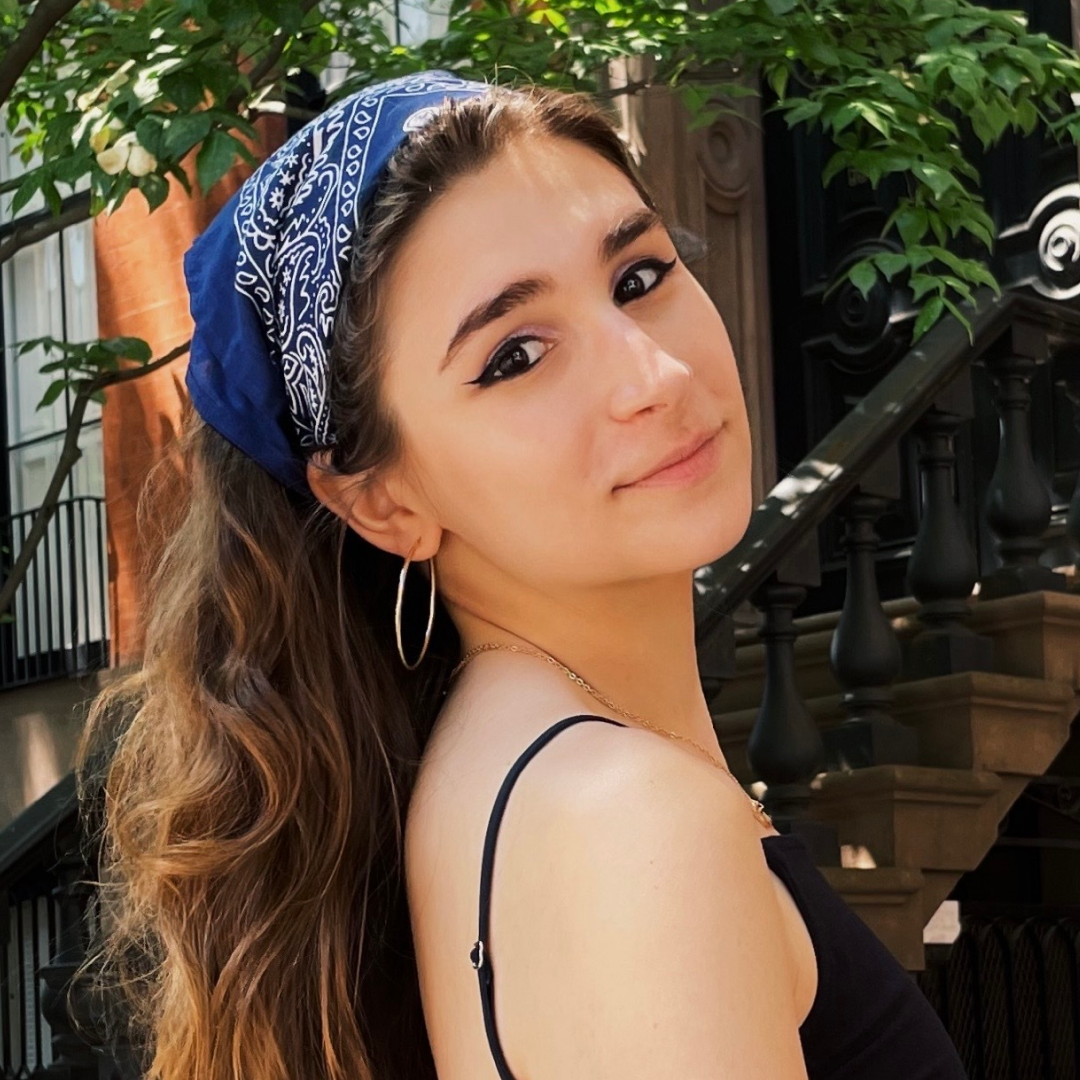
Sadie Bell is the Senior Culture Editor at Marie Claire, where she edits, writes, and helps to ideate stories across movies, TV, books, music, and theater, from interviews with talent to pop culture features and trend stories. She has a passion for uplifting rising stars, and a special interest in cult-classic movies, emerging arts scenes, and music. She has over nine years of experience covering pop culture and her byline has appeared in Billboard, Interview Magazine, NYLON, PEOPLE, Rolling Stone, Thrillist and other outlets.
